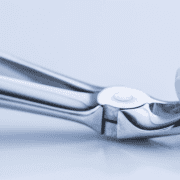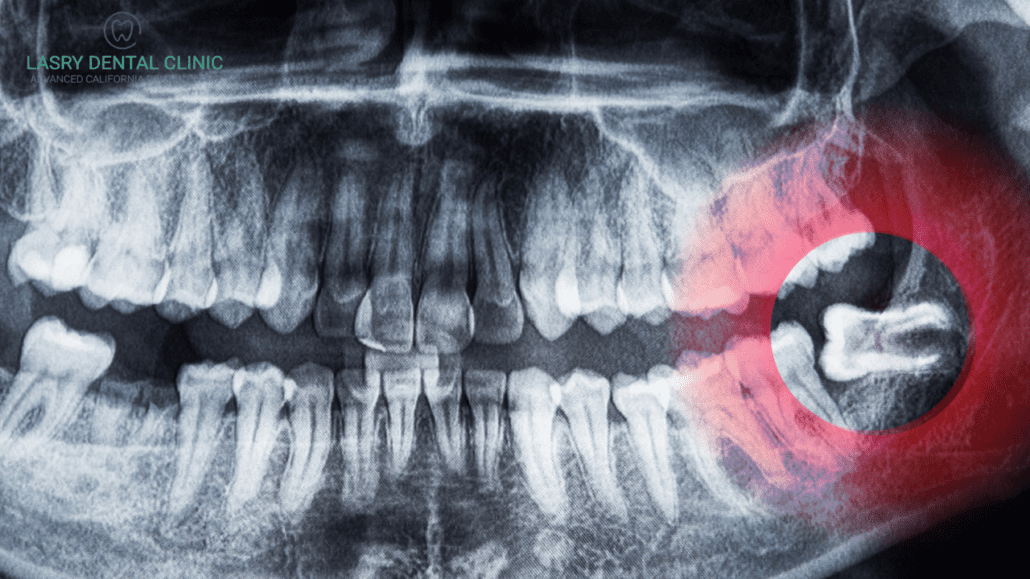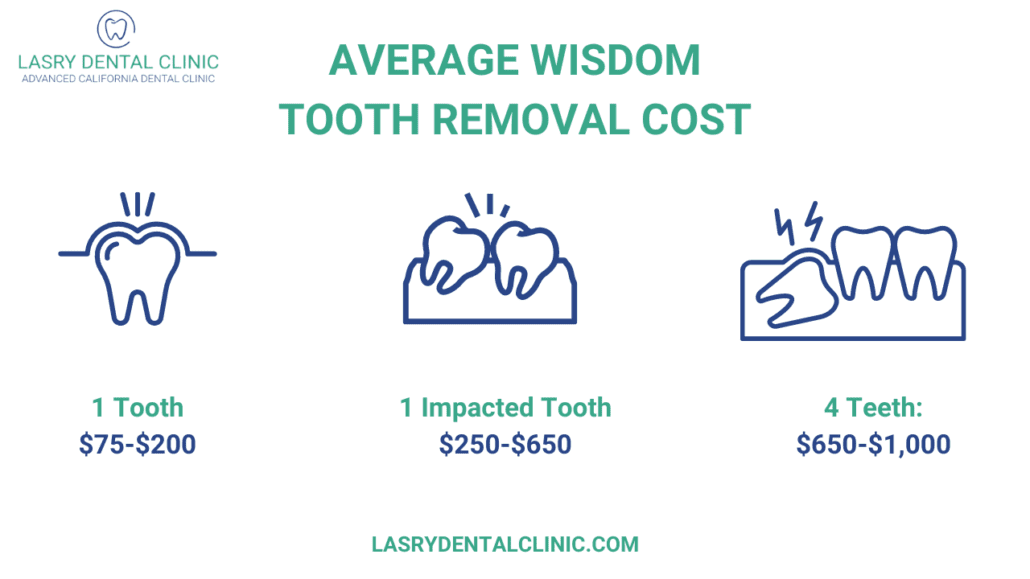How Much Does Wisdom Teeth Removal Cost? Dr. Lasry Breaks Down The Basics
Even though wisdom teeth removal is almost inevitable by the time you get to your 20s, nobody ever prepares you for the cost.
Your wisdom teeth are the four largest molars at the very back of your mouth. Five million people have their wisdom teeth extracted every year in the United States. The average age that most people get their wisdom teeth removed is between 15-25 years old.
Naturally, your other teeth have taken up most of your oral real estate at this age. You’ve already had braces, cavities, and fillings at this point. So when these little (well, actually, rather big) guys start to finally pop up, it can cause a lot of issues.
Before diving into wisdom teeth extraction costs, you need to figure out if you even need them removed. Everything you’ve ever wanted to know about wisdom teeth is in this blog, so you don’t need to go looking for answers all over the internet!
RELATED: HOW MUCH DOES A 3D DENTAL SCAN COST?
Why Wisdom Teeth Are Removed
So, why are wisdom teeth removed in the first place? The only reason you’ll ever need to worry about the wisdom teeth removal cost is if you actually need the procedure.
It’s true that most people get their wisdom teeth removed (about 85%). However, the only time you need these teeth removed is when they are causing issues.
According to the Institute for Quality and Efficiency in Health Care, you should be looking out for:
- Wisdom teeth causing pain or damage to your jaw or nearby teeth;
- Teeth preventing your other teeth from developing correctly;
- Interference with other planned dental or jaw-related treatments
Another big concern for these late bloomers is the risk of shifting teeth, cavities, and an impacted wisdom tooth.
When the tooth is impacted (aka it’s stuck underneath the gum line), it can cause oral infections, swelling, and just overall terrible pain in your jaw.
RELATED: HOW MUCH DOES IT COST FOR A DENTAL IMPLANT?
Wisdom Teeth Removal Before and After: What To Expect
How you feel before your wisdom teeth removal compared to after can be a massive relief to those truly suffering.
Before, you may suffer from constant headaches, jaw pain, even nausea, and loss of appetite. This usually happens when you have one or more impacted wisdom teeth.
If you have pain in the back of your mouth, it’s crucial that you schedule an appointment with a dentist near you as soon as possible. If your dentist suggests wisdom tooth extraction, here’s what you can expect.
Prepping For Wisdom Tooth Surgery
There’s not much to do before your surgery. You’ll have a preliminary appointment with your dentist to take 3D scans of your teeth. This helps us see how impacted your tooth is and how many molars need extracting.
During this appointment, you and your dentist will discuss what type of anesthesia you prefer. Keep in mind that the type of anesthesia you choose affects the overall cost.
You can choose from 3 types of anesthesia:
- Local ($): Which means you’re awake during the procedure, but you can’t feel anything.
- Sedation($$): A combination of local anesthesia and an IV drip. You’ll doze in and out of consciousness with this option, but again, you won’t feel anything.
- General($$$): This anesthesia knocks you out entirely so that you’re unconscious throughout the entire procedure.
While you may feel a bit nervous before your wisdom tooth removal, most people feel secure with a local or sedation anesthesia (aka laughing gas)
Wisdom Teeth Procedure
Thankfully, this surgery is an outpatient procedure, which means you’re free to go home the same day. You’ll just need someone to take you home since you’re undergoing anesthesia.
You only need to come to your appointment with a few things:
- Payment and insurance
- Comfortable clothing
- A driver
Once you’re called back, we’ll answer any lingering questions you might have. From there, we administer the anesthesia, and the procedure begins!
- Step 1. Numbing: Your dentist will numb your gums and tissues (even if you have general anesthesia).
- Step 2. Loosening: Next, we’ll loosen the tooth. This may include removing bone or tissue.
- Step 3. Extraction: We perform your wisdom tooth extraction using special surgical instruments.
- Step 4. Stitches: Once we remove one or more teeth, we’ll stitch you up before bringing you out of sedation.
Don’t worry— you won’t be able to feel a thing!
How Long is Wisdom Tooth Surgery?
Your surgery will only take about 45 minutes! After your surgery, you’ll wake up with cotton and gauze in your mouth to stop the bleeding. You’ll feel a bit dizzy, but this will subside after a few hours.
For the first 24 hours, make sure you only eat soft foods, don’t brush your teeth, and refrain from smoking or drinking alcoholic beverages. This gives your gums the proper time to heal.
What To Eat After Wisdom Teeth Removal
Here are the best foods to eat after tooth extraction:
- Smoothies: Fruit or vegetable-based smoothies are probably the most popular after-surgery food option. We recommend staying away from fruits with seeds in them (such as strawberries), so they don’t get lodged in the surgical site.
- Ice Cream: After wisdom teeth removal, plain ice cream without candy is perfectly acceptable to eat. The cold might also subdue inflammation and pain for a bit.
- Jell-O and Yogurt: Try flavored Jell-O or yogurt that doesn’t contain nuts or bits of fruit. Again, you don’t want anything to get stuck in your teeth or gums.
- Mashed Potatoes: If you don’t have a sweet tooth, mashed potatoes are an excellent choice for a post-wisdom tooth removal.
- Soup: Broth-based soups such as tomato, potato, or chicken noodle soups are excellent sources of protein after surgery. Soups that contain small chunks of meat are safe for consumption; just make sure you eat the soup warm.
- Salmon: This fish is soft enough to eat after surgery, but we recommend waiting 3-7 days.
Foods and drinks you want to avoid include alcohol, spicy food, nuts or granola, cookies, or candy. We know— it’s no fun!
You can resume regular food consumption after about 3-4 weeks. Remember that it takes 6 weeks to fully heal after dental surgery, so talk to your dentist about food restrictions.
Wisdom Teeth Removal Recovery Time
The average recovery time for wisdom teeth extraction is about 6 weeks. This is how long it takes for your socket and gums to completely heal so that you won’t develop the dreaded dry socket.
However, you can likely return to work after a day or two. Just make sure not to hit the gym for at least a week. Any strain on your body can cause your blood clot to break and cause a dry socket.
Here’s the breakdown of events after your wisdom teeth extraction:
- Anesthesia: 3-5 hours
- Bleeding: 4 hours up to a few days
- Pain: 3-7 days
- Swelling: 2-3 days
- Soreness: 7-10 days
Of course, recovery time depends on your at-home care and how many wisdom teeth they remove.
Complications After Wisdom Teeth Surgery
The most common complication following a tooth extraction is a dry socket.
This happens when your blood doesn’t clot around the extraction area. Without this layer of protection, your bone and nerve endings are exposed, causing pretty intense pain.
Besides that, the only other symptoms you’ll experience are:
- Numbness
- Minor pain near the extraction area
- Swelling
- Nausea
- Bleeding (contact your dentist if this persists after 12 hours)
- Limited mouth mobility
If you don’t follow your dentist’s at-home care instructions correctly, your wisdom teeth removal cost can skyrocket. Complications such as infections can cause you to have a whole new procedure.
The chances of something going wrong during the surgery are minimal. It’s a routine procedure that typically only requires pain medication and a couple of days or rest before you’re back to normal.
RELATED: HOW MUCH DOES A TEETH CLEANING COST?
How Much Does Wisdom Teeth Removal Cost?
The cost of wisdom teeth removal depends on how many you need pulled and whether or not it’s impacted. On average, you can expect to pay $75-$200 per tooth.
Based on your circumstances, the price for removing wisdom teeth can be:
- $75 to $200 for one tooth
- $250 – $650 for one impacted tooth
- $650 – $1000 to remove all 4 wisdom teeth
This is the price of wisdom teeth removal without insurance. Of course, these costs also don’t factor in your location, which anesthesia you choose, and what type of dentist you see. An oral surgeon may charge more, so check if your family dentist offers wisdom teeth removal services.
If you want to reduce the cost, your best bet is to get all four wisdom teeth removed at once. That way, you won’t have to pay for the anesthesia for each visit.
Does Insurance Cover Wisdom Teeth Removal?
Dental insurance usually covers medically necessary procedures. Dentists perform wisdom teeth extraction almost exclusively to eliminate potential health hazards such as impacted teeth. Because of this, your health or dental insurance typically covers the majority of wisdom teeth surgery.
Of course, your premium, co-pay, and deductible should detail how much you’ll have to pay out of pocket. Sedation is one factor most dental plans will not cover. But again, if complete sedation is medically necessary (due to anxiety, epilepsy, multiple extractions, or other conditions), you may be able to have your insurance cover this cost as well.
RELATED: HOW MUCH DOES IT COST TO GO TO THE DENTIST WITHOUT INSURANCE?
Should you get wisdom teeth surgery?
If you’re still not sure if you need wisdom teeth surgery, your best bet is to go to the best dentist near you. At Lasry Dental Clinic in Los Angeles, California, we offer free consultations for first-time patients!









Leave a Reply
Want to join the discussion?Feel free to contribute!